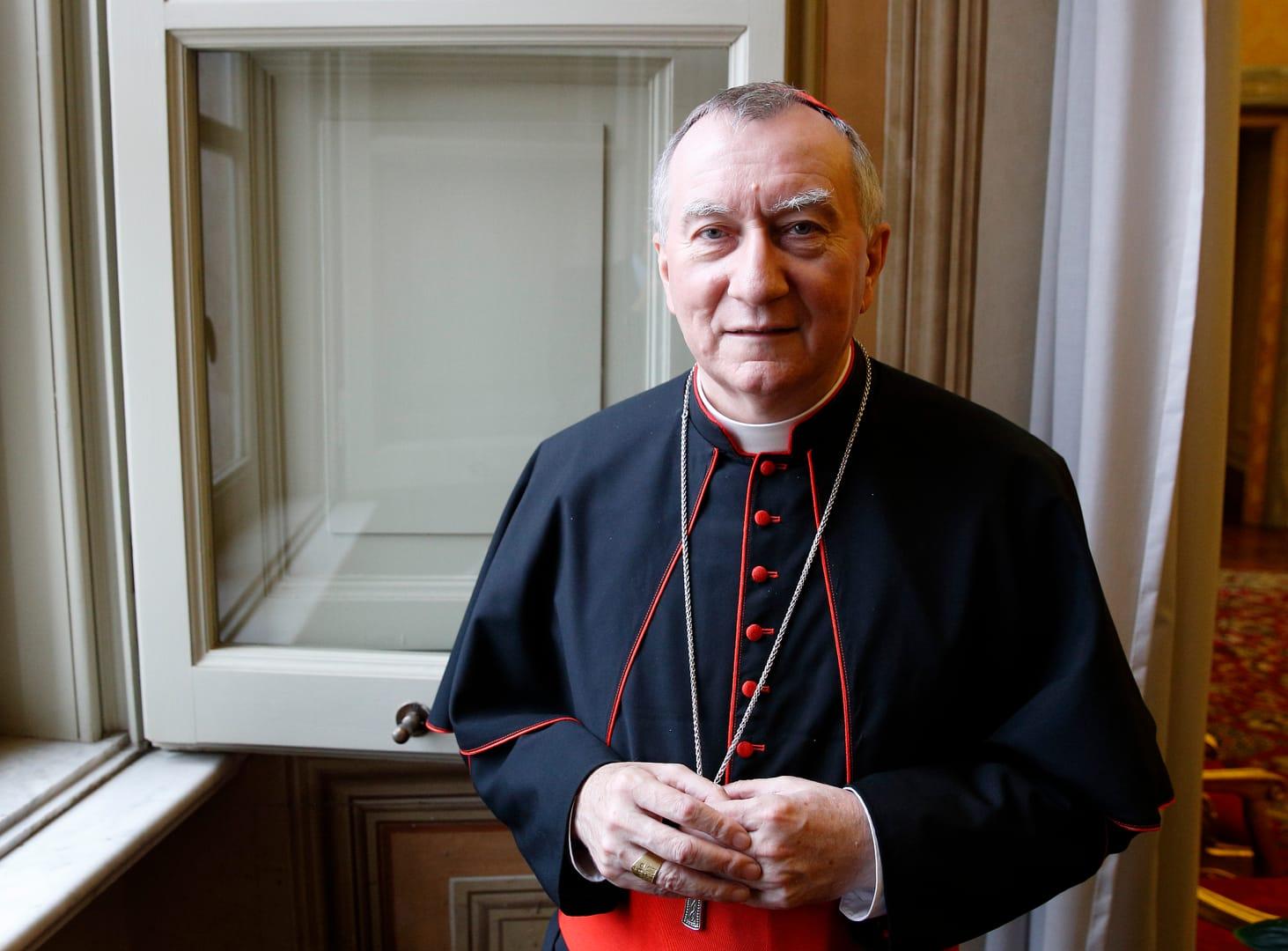ROME – In the Holy See’s latest bid to help bring an end to the ongoing Ukraine-Russia, Cardinal Pietro Parolin, the Vatican’s Secretary of State, will preside over a special Mass for peace in Ukraine later this month.
In a statement from the Apostolic Exarchate for Ukrainian Catholics of the Byzantine rite living in Italy, it was announced that Parolin will celebrate a Mass for peace in Ukraine on Nov. 17 at the Roman basilica of Saint Mary Major, Pope Francis’s favorite of the papal basilicas which he visits before and after every international trip.
The Mass, which is being jointly organized by the Vatican Secretariat of State, the Sovereign Order of Malta, and the Ukrainian Embassy to the Holy See, also coincides with the 30th anniversary of restoration of full diplomatic relations between Ukraine and the Holy See, when the late Pope John Paul II established the apostolic nunciature in Kyiv.
Ukrainian faithful belonging to the exarchate and others who wish to join the prayer for peace are invited to attend the Mass, which will concelebrated by other cardinals, bishops and priests of both the Roman and Greek-Catholic Churches.
Although it is not unusual for leading Vatican officials or even the pope to celebrate a special Mass for the intention of a specific country, as he did for Myanmar in 2021, and in July of this year for Congolese residents in Rome, news of the Mass is noteworthy, as it comes at a time when the Vatican is seeking to cement itself as a viable intermediary in peace negotiations between Russia and Ukraine.
When French President Emmanuel Macron was in Rome last month to meet the pope and attend the “Cry for Peace” interreligious event organized by the Sant’Egidio Community, he floated the idea of organizing a call between Russian President Vladimir Putin, Russian Orthodox Patriarch Kirill of Moscow, and United States President Joe Biden.
In an interview French weekly Le Point at the time, Macron said he suggested including Biden because “we need the United States to sit at the table to promote the peace process in Ukraine.”
In response to the suggestion, Kremlin spokesman Dmitry Peskov spoke to local media, saying, “we are ready to discuss all this with the Americans, with France, and with the pontiff, but we must remember that Ukraine has codified the non-continuation of negotiations” as long as Putin is in power.
Speaking to journalists while attending an event organized by the AVSI Foundation after Macron’s visit, Parolin said a spokesman for the Russian government had said that their position “was open to dialogue, including with the pope,” but that “so far we don’t know what these words mean, what development they will have.”
“Now we will see, we will study, it is a declaration that has just been made…we are reflecting on what could eventually be done,” he said.
However, Parolin insisted that it was still “too early” for any such a diplomatic initiative, even a phone call, but he reiterated that the Vatican is “open and willing to do everything possible. If there is a small opening, we will certainly take advantage of it.”
Parolin met with Russian Foreign Minister Sergey Lavrov in New York in September for a private conversation on the margins of a United Nations general assembly. The meeting was later described by Russia as “productive” and an opportunity to explain its reasons for the war in Ukraine.
Though Parolin and other top Vatican officials, including Pope Francis, have repeatedly condemned the war in Ukraine, called out Russia as the aggressors, and insisted that faith can never be a justification for violence, in an apparent rebuke of statements previously made by Kirill defending the war, Parolin’s meeting with Lavrov signaled openness on the part of Russia to a potential Vatican intervention.
The only trouble with Macron’s proposal is that Ukraine would notably be missing from the discussion.
Ukrainian President Volodymyr Zelenskyy has previously stated that negotiations with Putin are closed due to his demand to hand over portions of eastern Ukraine to Russia.
Zelenskyy, who is preparing to speak remotely at the G20 summit in Bali to offer an update on the situation in Ukraine, recently condemned what he said were some 400 war crimes committed by the Russians during their occupation of the recently liberated city of Kherson.
Notably, Putin will be absent from the summit.
Last week Pope Francis met with Major Archbishop Sviatoslav Shevchuk, head of the Ukrainian Greek Catholic Church, at the Vatican, during which Shevchuck updated Francis on the situation in Ukraine and thanked the pope for his prayers, peacemaking efforts and his intervention in attempting to free prisoners.
Whether the possibility of talks in Rome was mentioned is unknown, however, the Vatican continues to engage all sides and to insist on its availability to mediate, while also taking proactive steps in offering spiritual support to faithful who are increasingly feeling the burdens of the war.
Follow Elise Ann Allen on Twitter: @eliseannallen












